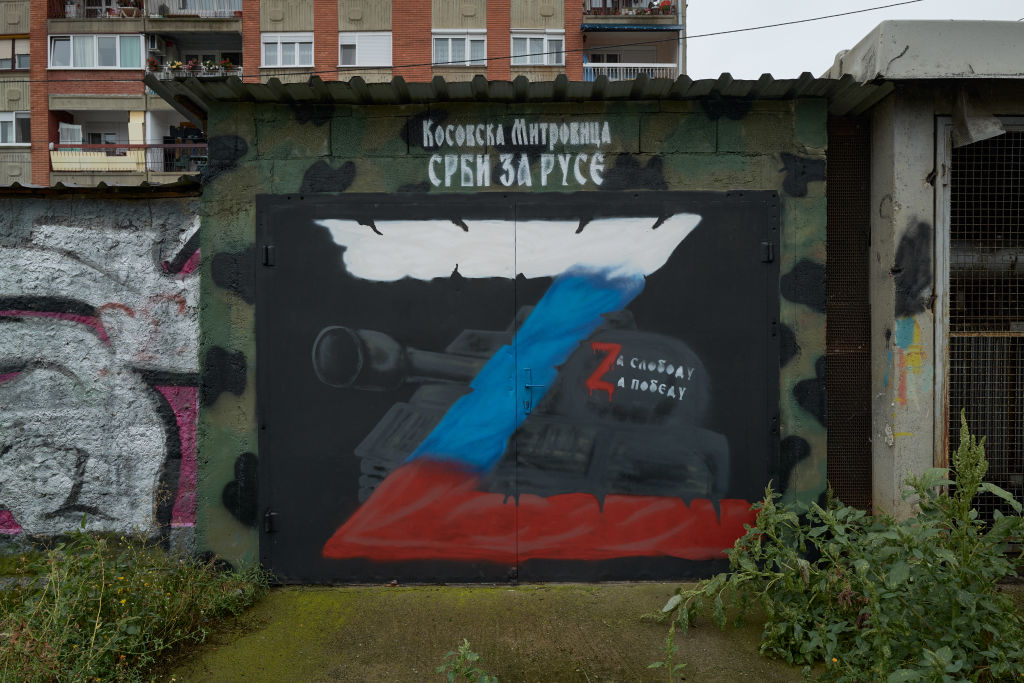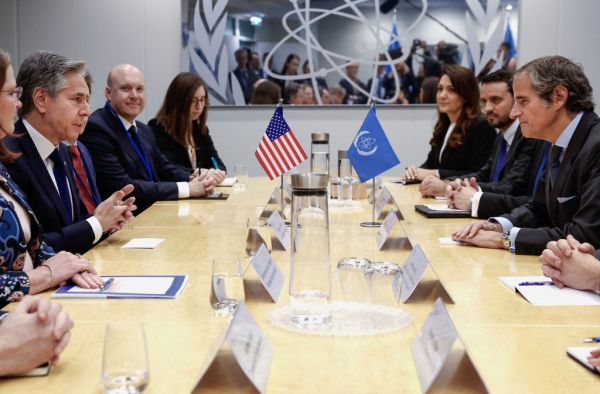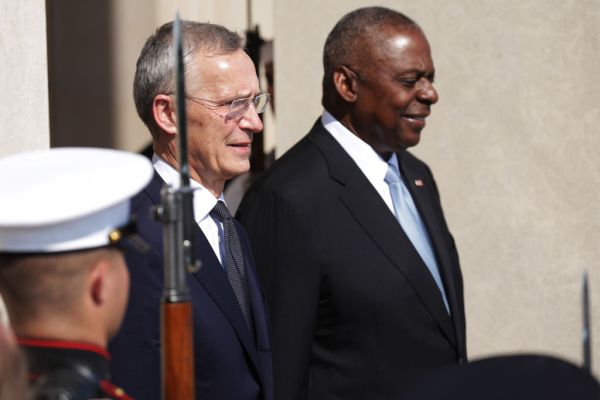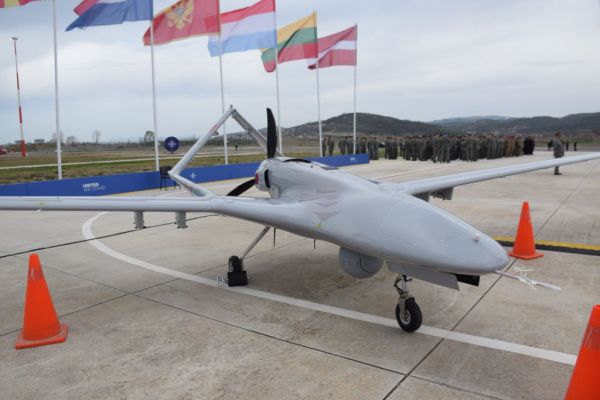America’s engagement in the former Yugoslavia in the 1990s remains one of its most consequential interventions, both in terms of cementing America’s role as the only superpower and in shaping the Western Balkans into a region of free and independent states. But 30 years later, the situation in the region is very different. The Western Balkans have become a renewed battleground in a new Cold War.
The events of the 1990s set out a vision wherein countries of the Western Balkans would become members of NATO and the European Union and solidify their place in the free world. But in the wake of 9/11, the United States shifted away from a human-rights–based foreign policy, designed to create reliable partners, to the war on terror. Instead of focusing on the reconstruction of the countries ravaged by Serbia the United States shifted its focus toward the twin wars in Iraq and Afghanistan.
U.S. foreign policy experts took the view that the European Union would take over—which it willingly did. However, the EU simply lacked the capacity and resources to support the whole region: In the early 2000s the European Union was already struggling to handle its own enlargement with the accession of 10 new member states, predominantly from the post-communist East.
As a result, for the last 20 years the Western Balkans has lacked geopolitical godparents in the West—stunting the development of the region and slowing the entry of those nations into the Euro-Atlantic world. The West’s adversaries are slowly filling this superpower-sized hole.
For more than a decade, China has been buying up critical infrastructure across the Western Balkans—lapping up ports, roads, and rail as part of the Communist Party’s flagship “Belt and Road Initiative.” And where the Chinese have not bought, they have built—often paid for with uncompetitive loans doomed to entangle the region in debt. For example, in 2014, China offered the Montenegrin government a loan of more than $1 billion for the construction of the new A-1 highway. The loan accounted for more than a quarter of the country’s total foreign held debt—and within the loan agreement sat a clause that would have seen Montenegro forced to hand over land to China in the case of non-repayment. The government was forced to turn to the EU for help with repayment in 2021, amid fears that China may start staking claims on land.
In December 2021, research by Balkan Insight found that China was already working on more than 135 different projects worth more than 32 billion euros. It noted that China is taking over not just critical infrastructure, but also strategic natural resources. In particular, Chinese firms had large stakes in the metallurgy industry—taking over mines and refineries—and shipping the product back to China to fuel the expanding economy.
China is by no means alone in its attempts to manipulate the Western Balkans. A coup plot was foiled in Montenegro in 2016 on the eve of the country’s accession to NATO. The culprits were identified as members of the Russian special forces (GRU) and former Serbian police officials aiming to put a pro-Russian/pro-Serbian government in power.
Russia has equally positioned itself as a key ally of Serbia, supporting attempts to undermine the internal stability of its neighbors. The Serbian government has made little attempt to mask its support for radical ethno-nationalist groups in Bosnia, and in its attempts to delegitimize Kosovo. Throughout, Russia has provided arms and political support.
Finally, to complete the triumvirate of disruptive powers in the region, Iran has also made several attempts to destabilize the region. In September, the Albanian government blamed Iran for a major cyberattack on the country’s critical digital infrastructure—knocking bank accounts, email servers, and government websites offline.
This came at the same time as a flare up between Serbia and Kosovo—in which Iran backed the Serbian government’s position. The dispute, over the recognition of car license plates, has triggered several months of tension between Kosovo and Serbia – with neither side stepping down. Iran’s intervention follows a policy of non-recognition of Kosovo as an independent state.
There is a deep fear among many pro-Western policy makers in countries like Bosnia, North Macedonia, Albania, Montenegro, and Kosovo that as the United States retreats further from the region, and the European Union continues to hide behind words rather than actions, that the region will fall to these outside influences.
Elected officials are already concerned that what happened in Ukraine may soon happen to them, and that when it does the West won’t come to their aid. In particular, Bosnian and Kosovan politicians are deeply worried that Serbia may encourage its minority groups inside their respective territories to incite insurrection.
Such an action would create countless problems for the West—least of all a new migration crisis, plus a conflict on yet another frontier of NATO. It would also pose a threat to energy lines that travel from the Middle East through the Western Balkans to Europe.
Some may ask what any of this has to do with the United States—after all, the Western Balkans are far away and obscure to most Americans. Yet the reality is that American policymakers cannot be so naïve as to assume what happens on the other side of the world won’t affect them. The Ukraine war has already demonstrated that Europe is in a fragile economic position—another front opening up would push the continent over the edge. Any recession that took place in Europe would have immediate knock-on effects in the United States.
Equally, there is an influence problem. The U.S. has allowed its adversaries to take the upper hand in the region. In the Western Balkans, China finds resources to fuel its economy, Russia finds political support for its hostile actions, and Iran finds a new playing field to spread its radicalism.
The threat to the region is immediate. As Russia is pushed back in Ukraine, it will fall on increasingly desperate tactics to destabilize the rest of the European continent. An obvious point of weakness for Russia to exploit is its links with ethnic Serbian groups in Bosnia and Kosovo.
The groundwork for such an incitement already exists in Bosnia Herzegovina, where elections earlier this year have inflamed tensions between the country’s three main ethnic groups. Of note is the fragile relationship between the ethnically Serbian Republika Srpska and the Federation of Bosnia and Herzegovina, the two entities that make up the country. In the runup to the elections, Republika Srpska’s firebrand President Milorad Dodik passed a vote in the Serb parliament to leave key Bosnian institutions—including the tax authority, military, and judiciary.
This move drew wide criticism as it was seen as a breach of the terms of the American-backed Dayton Agreement that established the fragile peace and power sharing arrangement in the country. Since the elections, Dodik’s positions have become increasingly more radical: He rejected calls for a recount of his own election.
The United States had for the longest time been active in upholding the Dayton Agreement, and acted as a guarantor of peace in the region. This policy of defending Dayton carried on even as U..S policy focus shifted toward the Middle East post-9/11. Indeed, even as U.S. troops were deployed to Afghanistan and Iraq, the US maintained a limited presence as part of the NATO mission in the region. However, many political leaders in the Western Balkans now question whether the United States or NATO would be willing to commit to intervention if something were to happen. And this fear has not gone unnoticed by the disruptive powers.
Decades of peace building by the United States and other allies could easily come undone—a situation that would be on a similar scale to the collapse of Afghanistan in August 2021. Some have accused America of falling asleep at the wheel when it comes to its international commitments.
While it might be easy for many Americans to brush off such criticism—or argue that reducing such commitments is the proper thing to do—the reality is that the United States is still very much viewed as a role model and a global leader. There are many in the region who still remember the examples of American leadership in the free world set by Ronald Reagan, and who are still thankful to Bill Clinton for his willingness to intervene to protect ordinary people being victimized by brutal ethno-nationalist authoritarian regimes during the breakup of Yugoslavia.
The United States should continue to lead by example, upholding the international rules-based system that it helped to build in the last century, and prevent it from being subverted by disruptive powers. Like it or not, the West is now locked in a new Cold War and regions like the Western Balkans are the new front line. If America is truly to be the leader of the free world, then it should continue to stand by its commitments and keep countries like Kosovo, Bosnia, Albania, Montenegro, and North Macedonia free.








Please note that we at The Dispatch hold ourselves, our work, and our commenters to a higher standard than other places on the internet. We welcome comments that foster genuine debate or discussion—including comments critical of us or our work—but responses that include ad hominem attacks on fellow Dispatch members or are intended to stoke fear and anger may be moderated.